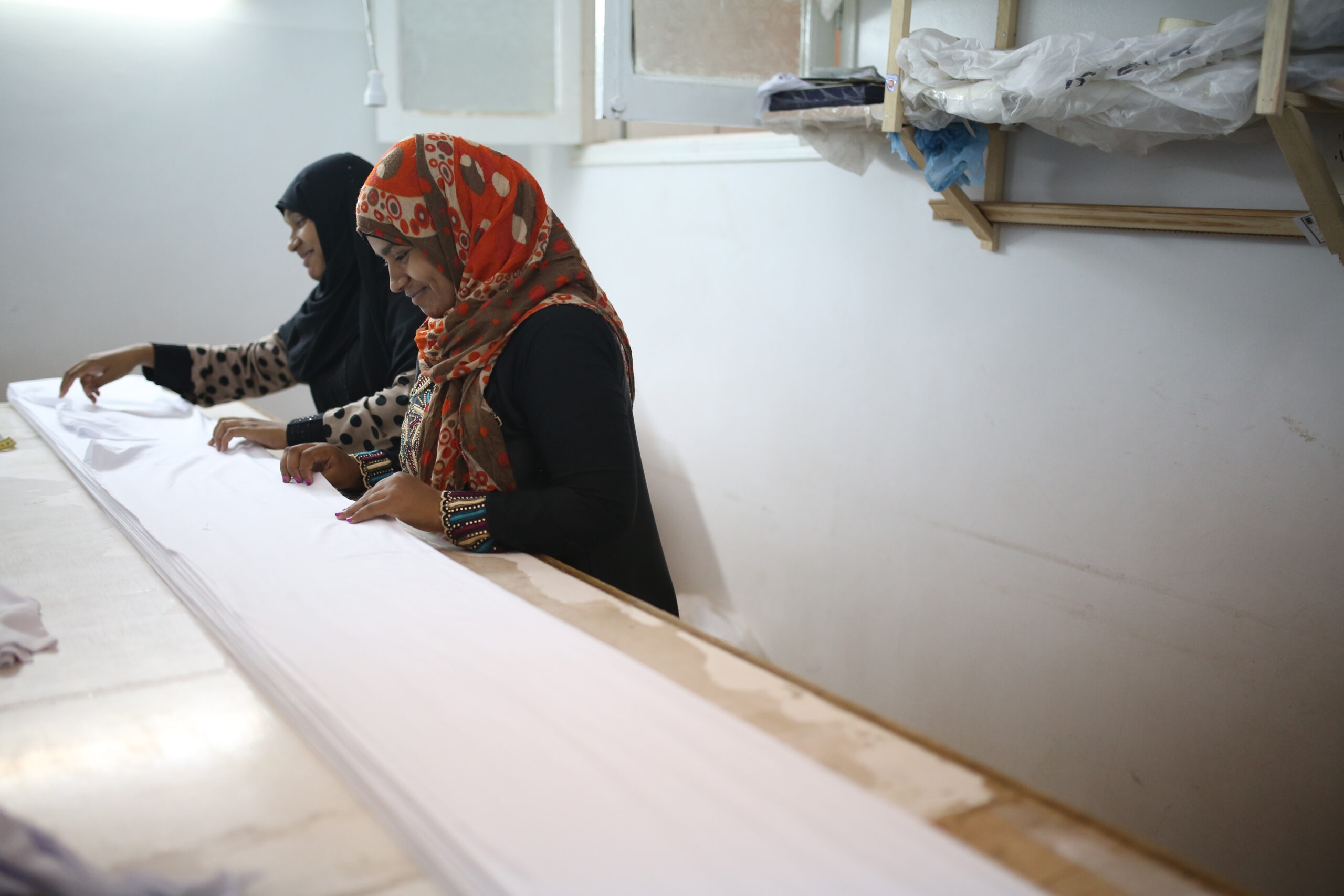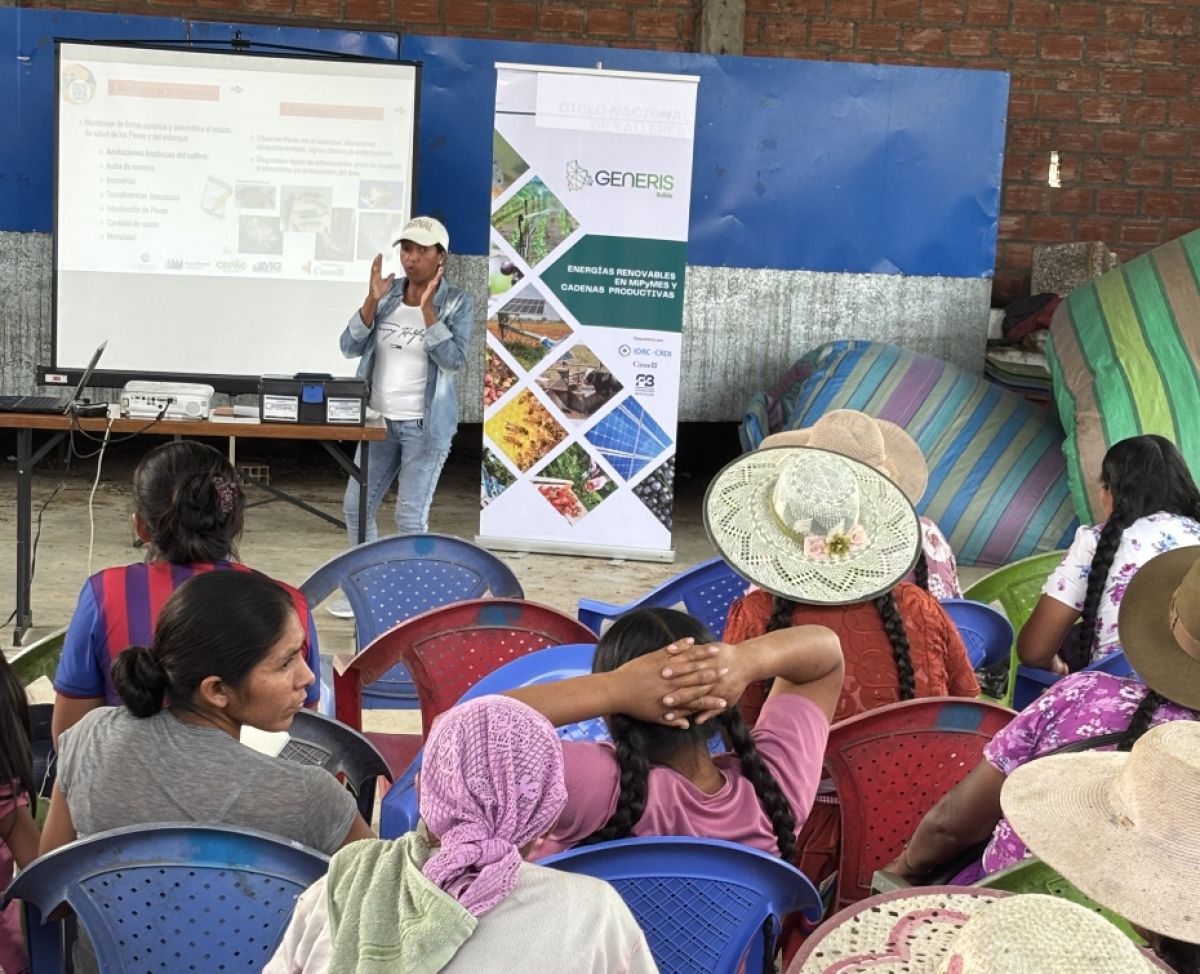
Powering Equity: Celebrating the International Day of Clean Energy
26 January 2025
Today, on the International Day of Clean Energy, we highlight the urgent need for an inclusive and equitable energy transition, aligned the 7th sustainable development goal; Ensure access to affordable, reliable, sustainable and modern energy for all
The Clean Energy for Development Call to Action (CEDCA), supported by the International Development Research Centre (IDRC), is a step towards ensuring that clean energy solutions benefit all, particularly marginalised groups who are often left out of global climate initiatives.
The Urgency of a Just Clean Energy Transition
The transition to clean energy is not just about reducing carbon emissions—it’s about rethinking who benefits from the transition. For too long, marginalized communities have faced energy poverty while wealthier nations and corporations shape the agenda. Without proactive interventions, the shift to low-carbon economies could deepen existing inequalities.
“We see clean energy as the golden thread between economic development, social inclusion, and environmental protection,” says Erin Tansey, Director of Sustainable Inclusive Economies at IDRC. This means that investing in clean energy must also mean investing in communities, jobs, and justice.
CEDCA’s Approach: Connecting Knowledge, Investment, and Action
CEDCA takes a systems-level approach to clean energy development by integrating research, policy engagement, and financial innovation. With 12 research projects spanning 27 countries, the initiative seeks to ensure that clean energy solutions advance sustainable energy access, promote green jobs, and enhance gender equality in the energy transition.
One of the key pillars of CEDCA’s work is generating evidence to inform policies and investments. This includes:
- Conducting baseline studies and policy analyses to understand barriers to clean energy adoption.
- Evaluating the impact of financial models that support women and youth-led clean energy enterprises.
- Developing knowledge-sharing platforms that facilitate South-South collaboration.
The Role of Clean Energy in Economic Empowerment
Access to clean energy is not just about sustainability; it is about economic empowerment. Millions of people in low-income communities still rely on expensive and polluting energy sources, limiting their economic opportunities. Clean energy solutions, such as solar microgrids, energy-efficient cookstoves, and wind power, can transform livelihoods, improve health, and create new job markets.
A major focus of CEDCA is the promotion of clean energy enterprises led by women and youth. By fostering financial inclusion, capacity-building, and entrepreneurship in the renewable energy sector, CEDCA ensures that these groups are not just passive beneficiaries but active contributors to the green economy.
Breaking Down Barriers: Policy and Financial Innovation
One of the significant barriers to clean energy adoption in developing regions is financing. Many small businesses and households struggle to access credit for renewable energy solutions due to high upfront costs. CEDCA is working to address this by developing innovative financing models, such as microfinance, pay-as-you-go solar models, and blended finance mechanisms that reduce investment risks.
Moreover, policy coherence is essential to scaling up clean energy access. Many countries still lack regulatory frameworks that incentivize clean energy adoption. CEDCA collaborates with policymakers, researchers, and industry leaders to create evidence-based policies that encourage investment in sustainable energy solutions.;
“By ensuring better-aligned policies and investments, we can accelerate the transition to low-carbon economies that work for everyone,” says Duggan.
Strengthening Collaboration for a Sustainable Future
One of CEDCA’s key contributions is fostering South-South collaboration. Many successful clean energy initiatives have emerged in Latin America, Africa, and Asia, and sharing knowledge across these regions is crucial for scaling up solutions. Through research networks, policy dialogues, and cross-country learning exchanges, CEDCA ensures that best practices are widely shared and implemented.
From Research to Policy Impact
One of the critical gaps in climate research has been the disconnect between policymakers, investors, and communities on the ground. CEDCA seeks to bridge this gap by fostering dialogue between these stakeholders;
“Often, research provides recommendations for national policymakers or investors, but we rarely see them in conversation with each other,” Duggan explains. By creating spaces for these discussions, CEDCA helps translate research into actionable policies and investments that drive a just energy transition.
A major focus is on developing financing mechanisms that de-risk investments in clean energy initiatives. By working with policymakers, CEDCA is advocating for regulatory frameworks that incentivize sustainable energy investments and ensure they benefit local economies.
Looking Ahead: A Call for Inclusive Energy Action
As we mark the International Day of Clean Energy, the message is clear: clean energy must be accessible, inclusive, and just. Initiatives like CEDCA demonstrate that meaningful change is possible when research, policy, and community voices come together. Watch this video to learn more about IDRC’s aspirations for the CEDCA initiative.
blog
Women’s leadership and innovative finance: Driving climate resilience and sustainable development
Thursday 20 November 2025
This panel, hosted as part of COP30, will explore how women’s leadership and inclusive financial innovation serve as powerful levers for climate resilience and sustainable development. The session will highlight concrete examples internationally, focusing on the intersection of gender equity, entrepreneurship, and climate action. Panellists: Adel Ben Youssef, Université Côte d’Azur – featured Clean Energy […]
Unlocking the Potential of Small and Medium Businesses and Entrepreneurs in the Clean Energy Transition
3 December 2025
This report highlights outcomes and recommendations from the T20 Side Event ‘Unlocking the Potential of Small and Medium Businesses and Entrepreneurs in the Clean Energy Transition’, held in Johannesburg on 17 October 2025. It presents seven recommendations for concrete steps to turn the G20’s green energy principles into practice, with South Africa’s presidency positioned as […]
Supporting economic growth and climate action through renewable energy: Insights from fish farming in Bolivia
8 December 2025
Agriculture continues to represent a critical source of foreign exchange and job creation throughout the Global South. The future growth and development of the sector depend on farmers, processors and traders finding innovative ways to produce more and better-quality products or to reduce costs, without harming the natural resource base. Renewable energy — in particular, […]



